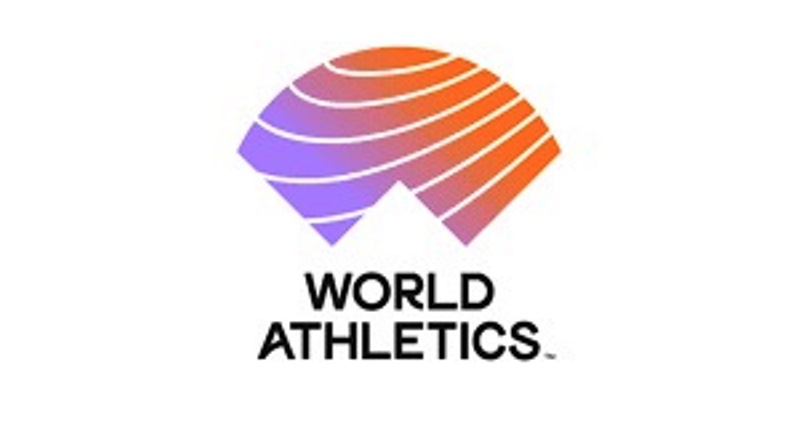 The World Athletics Council has made a number of important decisions at its 229th meeting in Rome, to round out a highly successful year for the sport and provide guidance for the coming years.
The World Athletics Council has made a number of important decisions at its 229th meeting in Rome, to round out a highly successful year for the sport and provide guidance for the coming years.
In his summary of the year, World Athletics president Sebastian Coe noted that the organisation had organised four World Athletics Series events, attended by almost 4000 athletes from 180 countries, who set 354 national records. These events reached a cumulative global TV audience of three quarters of a billion, which extended well over one billion when accounting for the digital audience.
Among other events, the sport staged 162 Continental Tour events where almost 12,000 athletes competed from 159 countries, setting 2 area records, 118 national records and 2,396 personal bests.
On the road, the tally will be 200 events with almost 3 million people participating and generating a total revenue of $1.7 million, of which $72,000 will be paid to the AIU for their testing programme at the top level marathons.
The World Athletics website had 33 million visitors with over 1 billion hits on the competition statistics database. Our media coverage has reached 10 billion people. Our social media followers grew to 10 million and our fan database grew to 183,000.
The Council reached the following decisions in its two-day meeting in Rome.
Host of the 2024 World Athletics Relays announced
The 2024 World Athletics Relays have been awarded to Nassau in The Bahamas.
This event will be held in April/May 2024 (dates to be confirmed) and will be the main Olympic qualifying event for the men’s and women’s 4x100m and 4x400m relays and the mixed 4x400m relay.
Coe welcomed the decision, saying: “We have had three wonderful editions of the World Athletics Relays in Nassau, which established this event on the global calendar, so we know we are in safe hands for what will be an important Olympic qualifier for all our relay events. We are confident that The Bahamas will offer the best conditions for the athletes and a brilliant atmosphere for both athletes and fans as we mark a key milestone on the road to the Paris Olympic Games.”
The President of the Bahamas Association of Athletic Associations (BAAA) Drumeco Archer responded: “We are incredibly excited for the long-awaited homecoming of the World Athletics Relays 2024 and we are grateful to the World Athletics Council for considering The Bahamas as the host city for this all-important event. The BAAA family and stakeholders will be standing at the seashores and airports with the banner of athletics waving high as we welcome the world of athletics and sporting enthusiasts back to our shores.
“With a mutual sense of excitement, the Government of The Bahamas is proud to welcome you back to our country, which is widely known as a sporting paradise. Both the Government of The Bahamas and the BAAA intend to make the fourth hosting of this event the most ‘Bahamazing’ experience of them all!”
Russia Taskforce report
World Athletics’ Russia Taskforce expects to be in a position to make a final recommendation to the World Athletics Council on the reinstatement of the Russian Federation (RusAF) at the next Council Meeting in March 2023, provided RusAF continues to make progress in reforming its culture, Taskforce Chair Rune Andersen told the Council today.
However he acknowledged that RusAF’s progress on its reinstatement plan would have no bearing on any Council decision on RusAF’s status arising from the war in Ukraine.
In presenting his regular report to the Council, Andersen said that the RusAF leadership team had “embedded a new culture of good governance and zero tolerance for doping throughout the organisation” under Acting President Irina Privalova.
He noted that RusAF is reporting historic anti-doping rule violations uncovered in the Moscow Laboratory Information Management System (LIMS), is delivering anti-doping education for 13,000 young athletes, has developed a test distribution plan that includes more than 2000 domestic tests of Russian athletes per year (most out of competition), and is taking other initiatives, including fining government-funded athletes for any single whereabouts violations.
But Andersen said that widespread and sustainable cultural change would likely take many years to embed and would proceed at different paces in different parts of the system. He expressed concern around the decision of the RUSADA disciplinary commission not to publish its findings in the case of the ice-skater Kamily Valieva.
He said the close monitoring and oversight of RusAF’s operations would not end when its suspension from membership of World Athletics was lifted, but this function would be taken over by the Athletics Integrity Unit, which would enforce a detailed set of Post-Reinstatement Conditions, more stringent than those currently imposed on “Category A” federations (those regarded as most at risk of major doping issues).
These conditions would be finalised with the AIU over the coming months and would be presented to the Council for approval before the Taskforce made its final recommendation on reinstatement.
The Taskforce would also recommend that, to prevent backsliding or interference, any material breach of the Post-Reinstatement Conditions should trigger a Council proposal to Congress to expel RusAF permanently from membership of World Athletics.
World Athletics Series updates
In order to continue to support the development of road running, especially the growth of road miles and 5 km road races, the Council agreed to change the current frequency of the biennial World Road Running Championships, making it an annual event. The annual rotation will start in 2025.
The Council also approved the following dates for upcoming World Athletics Series events:
World Athletics Cross Country Championships Medulin/Pula 24: 10-11 February 2024
World Athletics U20 Championships Lima 24: 26-31 August 2024
World Athletics Championships Tokyo 25: 13-21 September 2025
Changes to competition rules
From 1 January 2023, World Athletics will introduce an official world record for the road mile. Prior to 1 September 2023, official recognition of a world record will require a performance of at least 3:50.00 (men) / 4:19.00 (women). If the listed standards are not met by 1 September, the fastest recorded, record-eligible performances will be recognised as the world records.
Kenyan Federation status
The Council discussed the ongoing situation with doping in Kenya in the context of the Athletics Integrity Unit’s regular report. It was agreed that the Kenyan Government’s commitment to provide an additional $5 million a year for the next five years to strengthen Kenya’s anti-doping programmes was an appropriate response to the situation at this time. As Kenya remains a Category A federation under the World Athletics anti-doping rules, the onus remains on Kenyan authorities to work closely with the AIU to ensure these funds are used effectively.
Coe welcomed the measures being taken to address the doping situation in Kenya.
“I particularly welcome the additional resource made available by the Government of Kenya in this fight. The only way that we can reduce the scale of this problem is a joint commitment across all the sports stakeholders in Kenya and of course World Athletics and its Athletics integrity unit,” Coe said.
DSD and transgender regulations
Outside of its formal meeting, the Council also attended a two-hour information session to discuss an ongoing review of the current DSD Regulations and Transgender Regulations. A preferred option for both sets of regulations was presented to the Council members and it was agreed that this option would be considered more widely during a consultation period with member federations, athletes and other stakeholders over the coming months. The results of this consultation and a final recommendation will be presented to the Council for a decision at its March meeting.
“As most of you will know, we have always said our regulations in this area, and all areas, are subject to review at any time,” said Coe. “In terms of these regulations, we will follow the science and the decade and more of the research we have in this area in order to protect the female category, maintain fairness in our competitions and remain as inclusive as possible.”
Some additional work is being prepared following the Council information. Once this is complete World Athletics will share its preferred option publicly as part of the consultation process.
WORLD ATHLETICS

































